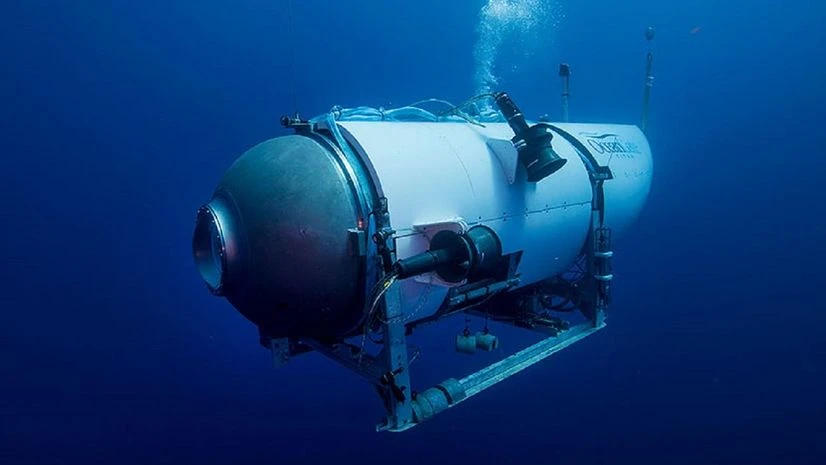Rescuers have detected "banging sounds" in the North Atlantic Ocean, where the submersible with five people onboard vanished on Sunday.
A Canadian P-8 aircraft using sonar "heard banging sounds in the area every 30 minutes". Additional sonar devices were installed after the noises were heard.
"Canadian P-3 aircraft detected underwater noises in the search area. As a result, ROV (remotely operated vehicle) operations were relocated in an attempt to explore the origin of the noises," the US Coast Guard's First District said on Twitter.
The US Coast Guard and Canadian Coast Guard are hunting the ocean’s surface to find the submersible that was on a dive into the wreckage of the Titanic.
As of Tuesday morning, a total of 10,000 square miles had been searched, according to the US Coast Guard.
Also Read: Titanic tour submersible goes missing, here's everything you need to know
Also Read: Titanic tour submersible goes missing, here's everything you need to know
The OceanGate Expeditions’ submersible, Titan, has five people onboard, including British billionaire Hamish Harding, French diver Paul-Henri Nargeolet and Pakistani businessman Shahzada Dawood and his 19-year-old son Suleman Dawood, and Stockton Rush, founder, and CEO of OceanGate Expeditions.
More From This Section
The watercraft submerged on Sunday morning from its support vessel, the Canadian research vessel Polar Prince. About an hour and 45 minutes later, the Titan lost contact with Polar Prince, authorities said.
The Titan is equipped with a four-day emergency oxygen supply. It is estimated that the five passengers have about 40 hours of oxygen supply left inside the 21-foot vessel.
The US Coast Guard said that an underwater robot is searching in the vicinity of the Titanic and that there was a push to get salvage equipment to the scene in case the craft is found. Three C-130 aircraft and three C-17 transport planes from the US military have been aiding the search, and the Canadian military has deployed a patrol aircraft and two surface ships.
The US Coast Guard said that the remote location — 900 miles east of Cape Cod and up 13,000 feet below sea level — makes the pursuit "an incredibly complex operation."

)
